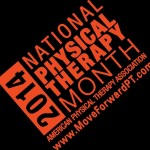The 7 Myths of Physical Therapy
Here are the 7 most common myths about physical therapy.
1. Myth: I need a referral to see a physical therapist.
Fact: In Connecticut you can come see a PT without a physician referral for up to 6 visits or 30 days and then you will require a physician assessment/referral. The current exceptions to direct access in CT are patients who have Medicare coverage, sustained a work injury, or have Connecticare insurace.
2. Myth: Physical therapy is painful.
Fact: Physical therapists seek to minimize your pain and discomfort—including chronic or long-term pain. They work within your pain threshold to help you heal, and restore movement and function.
3. Myth: Physical therapy is only for injuries and accidents.
Fact: Physical therapists do a lot more than just stretch or strengthen weak muscles after an injury or surgery. They are skilled at evaluating and diagnosing potential problems before they lead to more serious injuries or disabling conditions—from carpal tunnel syndrome and frozen shoulder, to chronic headaches and lower back pain, to name a few.
4. Myth: Any health care professional can perform physical therapy.
Fact: Although 42% of consumers know that physical therapy can only be performed by a licensed physical therapist, 37% still believe other health care professionals can also administer physical therapy. Many physical therapists also pursue board certification in specific areas such as neurology, orthopedics, sports, or women’s health, for example.
5. Myth: Physical therapy isn’t covered by insurance.
Fact: Most insurance policies cover some form of physical therapy. Beyond insurance coverage, physical therapy has proven to reduce costs by helping people avoid unnecessary imaging scans, surgery, or prescription drugs. Physical therapy can also lower costs by helping patients avoid falls or by addressing conditions before they become chronic.
6. Myth: Surgery is my only option.
Fact: In many cases, physical therapy has been shown to be as effective as surgery in treating a wide range of conditions—from rotator cuff tears and degenerative disk disease, to meniscal tears and some forms of knee osteoarthritis.
7. Myth: I can do physical therapy myself.
Fact: Your participation is key to a successful treatment plan, but every patient still needs the expert care and guidance of a licensed physical therapist. Your therapist will leverage his or her specialized education, clinical expertise, and the latest available evidence to evaluate your needs and make a diagnosis before creating an individualized plan of care.

